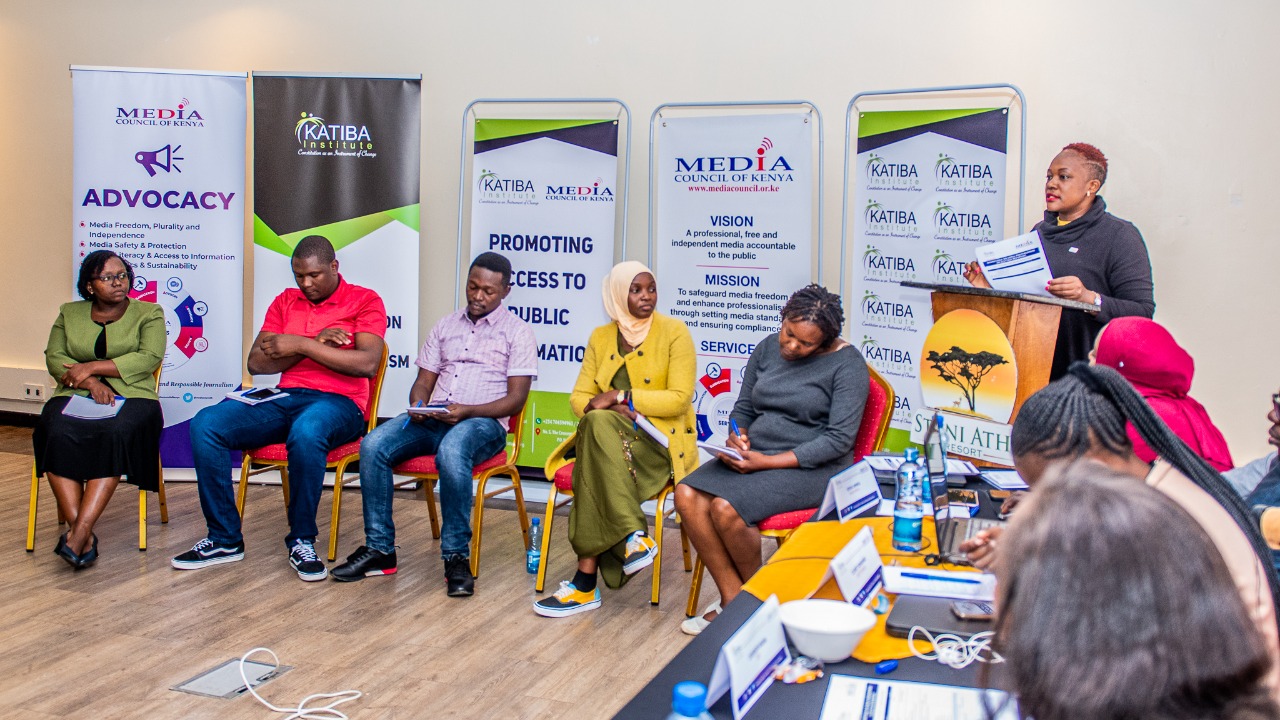
The Media Council of Kenya, in partnership with Katiba Institute, hosted 40 editors and reporters from various media houses and associations to a roundtable discussion on salient issues affecting media in the electioneering process.
MCK’s Director for Media Training and Development Mr Victor Bwire noted that media consumers have high expectations of the role of the media and therefore the media must remain awake to its duty:
“As the August polls near, editors must remember that citizens expect the media to give comprehensive coverage and advocate for real issues affecting Kenyans today”, said Mr Bwire.
Deputy Executive Director at Katiba Institute Ms Christine Njeru said that the institution was investing in partnerships with the media to ensure that the media is equipped to play its agenda-setting role.
“Elections are part of the democratic process in Kenya and the media have a critical role in driving the agenda of an election’’, she said.
Mr Dennis Galava, a moderator on Media Framing of Election Issues session, challenged the media to live up to its role of agenda setting as opposed to being mere conveyor belts of information.
“Kenyan journalism has remained an amplifier of information largely, yet the media is supposed to be an agenda setter, an enabler for discourse and an explainer of the various matters of public interest’’, he said.
Media Complaints Commissioner Mr Henry Maina underscored the media’s role in reinforcing the right to know and access to information to enhance public interest and investigative journalism. He added that journalists can use Access to Information as a deterrent to irregular public appointments as they can have access to the right information prior to such appointments and nominations.
“We have seen some undeserving individuals unfairly allocated seats belonging to the marginalised simply because the media has not been keen enough to scrutinize party lists”, he said.
Mr Maina urged media houses to set up election coverage plans on Access to Information and ask questions in advance to add to accountability on issues that ordinary players in the election management would not be willing to speak about.
MCK’s Manager, Press Freedom, Safety and Advocacy Ms Dinnah Ondari said the Council was intensifying its work on access to information to address existing gaps through development of a curriculum for training on ATI.
“The Council has worked with a number of partners including Katiba Institute and the Commission of Administrative Justice to train and sensitise journalists, public officers and the public on their various responsibilities”, said Ms Ondari.
Radio Africa Editor Mr Julius Otieno noted that the biggest gap remains reluctance by public officials to release information. He added that journalists have been forced to rely on press conferences by agencies in charge of managing information on elections to write stories because these institutions are not available to respond to requests and enquiries.
“Journalists cannot rely solely on press conference by agencies in charge of managing information on elections to write their stories. They need access to information to research and report comprehensively on issues of public interest”, said Mr Otieno.
The media was urged to remain cautious on issues of election offences as some of them affect the media directly. Taifa Leo’s Editor Mr Juma Namlola said such offences touch on the secrecy of the ballot.
“Journalists should familiarise themselves with laws that cushion them from becoming victims during the elections’’, said Mr Namlola.
Court reporters were urged to be wary of deception that comes with election petitions and rely on court documents and files to ensure the accounts from parties complement each other, noting that some lawyers and petitioners can deliberately mislead the media.